37TH CANADIAN CONFERENCE ON ELECTRICAL AND COMPUTER ENGINEERING- PANELS
Panel 1: Empowering Education through AI: The Crucial Role of Women Innovators
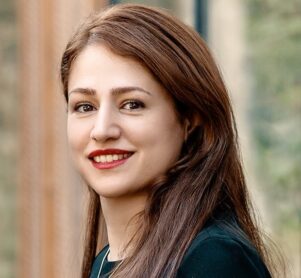 Panel Lead: Fattane Zarrinkalam
Panel Lead: Fattane Zarrinkalam
Dr. Fattane Zarrinkalam is an Assistant Professor at the School of Engineering, University of Guelph, the Kitchener-Waterloo IEEE Women In Engineering (WIE) Chair, and an affiliated faculty member at the Vector Institute. Her research interests lie in social media mining and semantic technologies, with a focus on the semantics of user-generated content, user interactions, and temporal behavioral patterns to extract actionable insights. Her interdisciplinary work addresses real-world challenges in various sectors, including healthcare, telecommunications, legal technology, and e-commerce. She has published extensively in leading venues such as CIKM, ESWC, and ECIR, as well as premier journals including Information Retrieval and Information Processing & Management. Dr. Zarrinkalam is the principal author of “Extracting, Mining and Predicting Users’ Interests from Social Networks,” published in Foundations and Trends in Information Retrieval. Additionally, she has been involved in four patent applications filed with the USPTO and has presented tutorials on user interest mining from social media at top-tier conferences like SIGIR and KDD.
Panelist:
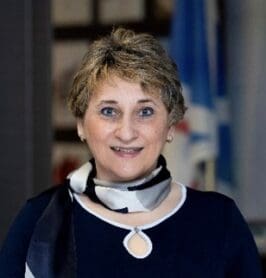 Octavia A. Dobre is a Professor and Canada Research Chair Tier 1 at Memorial University, Canada. Her research interests include technologies for future wireless networks, as well as optical and underwater communications, on which topics she published over 500 papers. Dr. Dobre is the Vice-President Publications of the IEEE Communications Society (ComSoc) and served as the inaugural Editor-in-Chief (EiC) of the IEEE Open Journal of Communications Society, EiC of the IEEE Communications Letters, and IEEE ComSoc Director of Journals. Dr. Dobre was a Fulbright Scholar, a Royal Society Scholar, and an IEEE Distinguished Lecturer. She is an elected member of the European Academy of Sciences and Arts, a Fellow of the Engineering Institute of Canada, a Fellow of the Canadian Academy of Engineering, and a Fellow of the IEEE.
Octavia A. Dobre is a Professor and Canada Research Chair Tier 1 at Memorial University, Canada. Her research interests include technologies for future wireless networks, as well as optical and underwater communications, on which topics she published over 500 papers. Dr. Dobre is the Vice-President Publications of the IEEE Communications Society (ComSoc) and served as the inaugural Editor-in-Chief (EiC) of the IEEE Open Journal of Communications Society, EiC of the IEEE Communications Letters, and IEEE ComSoc Director of Journals. Dr. Dobre was a Fulbright Scholar, a Royal Society Scholar, and an IEEE Distinguished Lecturer. She is an elected member of the European Academy of Sciences and Arts, a Fellow of the Engineering Institute of Canada, a Fellow of the Canadian Academy of Engineering, and a Fellow of the IEEE.
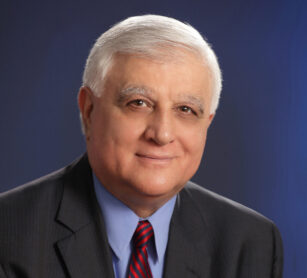 Thamir (Tom) Murad – Dr. Tom Murad, The IEEE Canada President & Director IEEE – R7 (2024- 2025). A member of Engineering Order of Honour – Professional Engineers Ontario “PEO”, is a respected Technology leader, Innovator, thinker, Board Member, award-winning Educator, and distinguished speaker on the topics of: Engineering, Technology, Leadership, and technical education & talents/skills development. An advocate of Innovation and creativity specifically in the Areas of Mechatronics, Digitalization, Smart Infrastructure, and Industry – 4.0 & 5.0. In 2010, he Joined Siemens in Canada. Prior to his role as the “Country Lead (V.P.) of Engineering & Technical Excellence at Siemens Mobility ( 2019-2023), he also led the “Engineering, Technology & Academics” for Siemens Canada organization as well as being the founder & Director of the Siemens Canada Engineering and Technology Academy “SCETA”, and the Siemens Mechatronics Systems Certification Program ( 2014 – 2020 ). Prior to joining Siemens, Tom held different roles as Vice President, Senior VP, and COO for many years with an extensive career in various Professional Engineering, Technical, and Executive Management of Innovative Technical Operations including Academic and R&D work. He is also serving as a member of various advisory Boards of Directors in Industry and Academia. Dr. Murad holds a Bachelor of Engineering (Electrical & Electronics), and a Doctorate (Ph.D.) in Power Electronics and Industrial Controls from Loughborough University of Technology in the UK, with a Leadership Program Certificate from Schulich Business School, York University in Ontario, Canada.
Thamir (Tom) Murad – Dr. Tom Murad, The IEEE Canada President & Director IEEE – R7 (2024- 2025). A member of Engineering Order of Honour – Professional Engineers Ontario “PEO”, is a respected Technology leader, Innovator, thinker, Board Member, award-winning Educator, and distinguished speaker on the topics of: Engineering, Technology, Leadership, and technical education & talents/skills development. An advocate of Innovation and creativity specifically in the Areas of Mechatronics, Digitalization, Smart Infrastructure, and Industry – 4.0 & 5.0. In 2010, he Joined Siemens in Canada. Prior to his role as the “Country Lead (V.P.) of Engineering & Technical Excellence at Siemens Mobility ( 2019-2023), he also led the “Engineering, Technology & Academics” for Siemens Canada organization as well as being the founder & Director of the Siemens Canada Engineering and Technology Academy “SCETA”, and the Siemens Mechatronics Systems Certification Program ( 2014 – 2020 ). Prior to joining Siemens, Tom held different roles as Vice President, Senior VP, and COO for many years with an extensive career in various Professional Engineering, Technical, and Executive Management of Innovative Technical Operations including Academic and R&D work. He is also serving as a member of various advisory Boards of Directors in Industry and Academia. Dr. Murad holds a Bachelor of Engineering (Electrical & Electronics), and a Doctorate (Ph.D.) in Power Electronics and Industrial Controls from Loughborough University of Technology in the UK, with a Leadership Program Certificate from Schulich Business School, York University in Ontario, Canada.
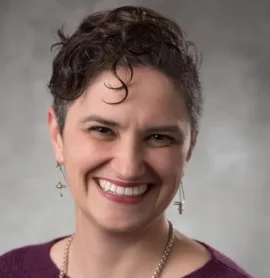 Julie Vale – Julie Vale received her M.A.Sc and Ph.D in Electrical and Computer Engineering from the University of Waterloo in 2004 and 2010 respectively. She joined the University of Guelph in 2012 and has held multiple administrative positions, including Associate Director of Undergraduate Studies for the School of Engineering. She has taught numerous engineering courses ranging from the first year to graduate courses and including topics such as linear algebra, electric circuits, systems and control theory and design, and capstone design. Dr. Vale is a fellow of the Canadian Engineering Education Association, a University of Guelph Teaching Leadership fellow, and the College of Engineering and Physical Sciences representative for the University of Guelph Teaching and Learning Network. Originally trained in electrical engineering as a systems and control theorist, Dr. Vale’s current research focuses on engineering education and the scholarship of teaching and learning. Her research has two aspects. The first focuses on the development of a tool to assist instructors in building assessments that promote problem-solving skills rather than promoting memorization. The second is a multi-disciplinary, multi-institutional investigation of how and why values-based learning outcomes should be scaffolded into STEM curricula and capstone experiences. Dr. Vale believes that building student and faculty appreciation of the intersections between social justice and engineering is crucial to empowering engineers to fulfill their mandate to serve the public. These intersections include the responsible and ethical use of AI in all aspects of engineering, including professional practice, research, and education.
Julie Vale – Julie Vale received her M.A.Sc and Ph.D in Electrical and Computer Engineering from the University of Waterloo in 2004 and 2010 respectively. She joined the University of Guelph in 2012 and has held multiple administrative positions, including Associate Director of Undergraduate Studies for the School of Engineering. She has taught numerous engineering courses ranging from the first year to graduate courses and including topics such as linear algebra, electric circuits, systems and control theory and design, and capstone design. Dr. Vale is a fellow of the Canadian Engineering Education Association, a University of Guelph Teaching Leadership fellow, and the College of Engineering and Physical Sciences representative for the University of Guelph Teaching and Learning Network. Originally trained in electrical engineering as a systems and control theorist, Dr. Vale’s current research focuses on engineering education and the scholarship of teaching and learning. Her research has two aspects. The first focuses on the development of a tool to assist instructors in building assessments that promote problem-solving skills rather than promoting memorization. The second is a multi-disciplinary, multi-institutional investigation of how and why values-based learning outcomes should be scaffolded into STEM curricula and capstone experiences. Dr. Vale believes that building student and faculty appreciation of the intersections between social justice and engineering is crucial to empowering engineers to fulfill their mandate to serve the public. These intersections include the responsible and ethical use of AI in all aspects of engineering, including professional practice, research, and education.
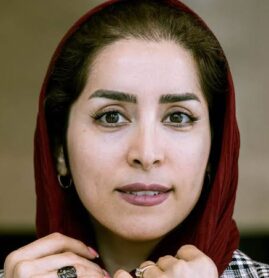 Hadis Karimpour – Dr. Hadis Karimipour is the Canada Research Chair (Tier II) in Secure and Resilient Cyber-Physical Systems and an Associate Professor in the Department of Electrical and Software Engineering, University of Calgary. A pioneer in using AI and Machine/Deep Learning for security analysis of critical infrastructure, Dr. Karimipour has published more than 130 journal/conference articles in top IEEE journals and conferences. Dr. Karimipour is a frequent keynote and invited speaker at international conferences and has chaired various IEEE workshops and sessions on AI and cybersecurity. She serves as Associate Editor of the IEEE Transaction in Industrial Informatics, International Journal of Electrical Power & Energy Systems, IET Smart Grid Journal.
Hadis Karimpour – Dr. Hadis Karimipour is the Canada Research Chair (Tier II) in Secure and Resilient Cyber-Physical Systems and an Associate Professor in the Department of Electrical and Software Engineering, University of Calgary. A pioneer in using AI and Machine/Deep Learning for security analysis of critical infrastructure, Dr. Karimipour has published more than 130 journal/conference articles in top IEEE journals and conferences. Dr. Karimipour is a frequent keynote and invited speaker at international conferences and has chaired various IEEE workshops and sessions on AI and cybersecurity. She serves as Associate Editor of the IEEE Transaction in Industrial Informatics, International Journal of Electrical Power & Energy Systems, IET Smart Grid Journal.
In recognition of her contribution on the AI-enabled security solution for critical infrastructure and cyber physical systems, she has received many awards, including Canadian Security Top 10 Under 40 by Canadian Security Magazine, IEEE Communications Society Early Achievement Award, Top 40 Under 40-from Avenue Magazine, and Most Inspiring Women in Cyber from UK IT Security Guru, to name a few.
Panel 2: Next-Generation (xG) Communication Network Infrastructures for Sustainability, Equitable Access, and Security
Panel Organizer: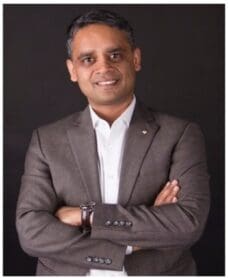
Ekram Hossain (Fellow, IEEE) is a Professor and the Associate Head (Graduate Studies) of the Department of Electrical and Computer Engineering, University of Manitoba, Canada. He is a Member (Class of 2016) of the College of the Royal Society of Canada. He is also a Fellow of the Canadian Academy of Engineering and the Engineering Institute of Canada. His current research interests include design, analysis, and optimization beyond 5G/6G cellular wireless networks. He was elevated to an IEEE fellow, for contributions to spectrum management and resource allocation in cognitive and cellular radio networks. He was listed as a Clarivate Analytics Highly Cited Researcher in Computer Science in 2017-2023. He has won several research awards, including the 2017 IEEE Communications Society Best Survey Paper Award and the 2011 IEEE Communications Society Fred Ellersick Prize Paper Award. He received the 2017 IEEE ComSoc TCGCC (Technical Committee on Green Communications and Computing) Distinguished Technical Achievement Recognition Award “for outstanding technical leadership and achievement in green wireless communications and networking”. He served as the Editor-in-Chief for the IEEE Press (2018–2021) and the IEEE Communications Surveys and Tutorials (2012–2016). He was a Distinguished Lecturer of the IEEE Communications Society and the IEEE Vehicular Technology Society. He served as the Director of Magazines (2020-2021) and the director of Online Content (2022-2023) for the IEEE Communications Society (2020–2021). He was an Elected Member of the Board of Governors of the IEEE Communications Society for the term 2018–2020.
Panelists:
 Gunes Karabulut Kurt is a Canada Research Chair (Tier 1) in New Frontiers in Space Communications and Associate Professor at Polytechnique Montréal, Montréal, QC, Canada. She is also an adjunct research professor at Carleton University. Gunes received the B.S. degree with high honors in electronics and electrical engineering from Bogazici University, Istanbul, Turkiye, in 2000 and the M.A.Sc. and the Ph.D. degrees in electrical engineering from the University of Ottawa, ON, Canada, in 2002 and 2006, respectively. She worked in different technology companies in Canada and Turkiye between 2005 and 2010. From 2010 to 2021, she was a professor at Istanbul Technical University. Gunes is a Marie Curie Fellow and has received the Turkish Academy of Sciences Outstanding Young Scientist (TÜBA-GEBIP) Award in 2019. She is serving as the secretary of the IEEE Satellite and Space Communications Technical Committee, the chair of the IEEE special interest group entitled “Satellite Mega-constellations: Communications and Networking,” and also as an editor in 6 different IEEE journals. She is a member of the IEEE WCNC Steering Board and a Distinguished Lecturer of the Vehicular Technology Society Class of 2022. Her research interests include multi-functional space networks, space security, and wireless testbeds.
Gunes Karabulut Kurt is a Canada Research Chair (Tier 1) in New Frontiers in Space Communications and Associate Professor at Polytechnique Montréal, Montréal, QC, Canada. She is also an adjunct research professor at Carleton University. Gunes received the B.S. degree with high honors in electronics and electrical engineering from Bogazici University, Istanbul, Turkiye, in 2000 and the M.A.Sc. and the Ph.D. degrees in electrical engineering from the University of Ottawa, ON, Canada, in 2002 and 2006, respectively. She worked in different technology companies in Canada and Turkiye between 2005 and 2010. From 2010 to 2021, she was a professor at Istanbul Technical University. Gunes is a Marie Curie Fellow and has received the Turkish Academy of Sciences Outstanding Young Scientist (TÜBA-GEBIP) Award in 2019. She is serving as the secretary of the IEEE Satellite and Space Communications Technical Committee, the chair of the IEEE special interest group entitled “Satellite Mega-constellations: Communications and Networking,” and also as an editor in 6 different IEEE journals. She is a member of the IEEE WCNC Steering Board and a Distinguished Lecturer of the Vehicular Technology Society Class of 2022. Her research interests include multi-functional space networks, space security, and wireless testbeds.
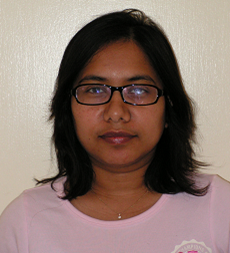 Israat Haque is an associate professor in the Faculty of Computer Science at Dalhousie University, Halifax, where, she leads Programmable and Intelligent Networking (PINet) research group. PINet members specialize in developing cutting-edge, high-performance, secure, and dependable distributed and emerging networking systems, with a specific focus on Software-Defined Networking (SDN), Internet of Things (IoT), and 5G/6G technologies. She is also interested in applying data-driven approaches (AI/ML/RL) to solve practical and relevant problems.
Israat Haque is an associate professor in the Faculty of Computer Science at Dalhousie University, Halifax, where, she leads Programmable and Intelligent Networking (PINet) research group. PINet members specialize in developing cutting-edge, high-performance, secure, and dependable distributed and emerging networking systems, with a specific focus on Software-Defined Networking (SDN), Internet of Things (IoT), and 5G/6G technologies. She is also interested in applying data-driven approaches (AI/ML/RL) to solve practical and relevant problems.
She received her Ph.D. degree from the Department of Computing Science at the University of Alberta. Subsequently, she held an NSERC post-doctoral position at the Department of Computer Science and Engineering at the University of California, Riverside, before joining Dalhousie University. She has been involved in the organizing committees of IEEE ICNP, IEEE CloudNet, IEEE NetSoft, and IFIP Networking. She served as an area editor of the IEEE Transactions on Vehicular Technology and is currently serving as an Editor of the Internet of Things Series of the IEEE Communications Magazine (ComMag). Dr. Haque won the ACM/IEEE N2Women Rising Star Award 2021 and Digital Nova Scotia’s Thinking Forward Award 2022.
 Mahmoud Gad is a Senior Cybersecurity Strategist with the Canadian Federal Government. He has 20 years of experience in cybersecurity and computer networking across the public sector, startups, consulting, and academia. His expertise spans both leadership and technical domains, focusing on IT security strategy, incident response, and cyber risk management. He is also a member of the Cyberlucent advisory board. Dr. Gad holds an M.Sc. from The University of Maryland, College Park, USA, and a Ph.D. from the University of Ottawa. Additionally, he is a Certified Chief Information Security Officer and a Certified Information Systems Security Professional.
Mahmoud Gad is a Senior Cybersecurity Strategist with the Canadian Federal Government. He has 20 years of experience in cybersecurity and computer networking across the public sector, startups, consulting, and academia. His expertise spans both leadership and technical domains, focusing on IT security strategy, incident response, and cyber risk management. He is also a member of the Cyberlucent advisory board. Dr. Gad holds an M.Sc. from The University of Maryland, College Park, USA, and a Ph.D. from the University of Ottawa. Additionally, he is a Certified Chief Information Security Officer and a Certified Information Systems Security Professional.
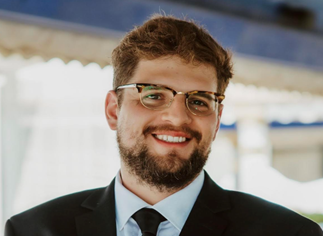 Fuad Shamieh is a Senior Solutions Engineer at Triplelift Inc., where he is participating in efforts to enable the future of Connected Television through innovative advertising solutions. From 2019 to 2022, Fuad worked as an Applications Engineer at Evertz Microsystems, where he designed, deployed, and maintained multimedia pipelines for Tier 1 broadcast providers. He received his PhD degree from Western University in 2019. He completed his undergraduate, master, and doctoral studies at Western University, where he specialized in wireless communications, computer networking and multimedia. His research interests include Over-the-Top (OTT) multimedia services, cryptography, blockchains, and IoT. His research contributions have been presented in various IEEE Transactions journals and IEEE conferences. He is an active member of the Institute of Electrical and Electronics Engineers (IEEE) and the Society of Motion Picture and Television Engineers (SMPTE).
Fuad Shamieh is a Senior Solutions Engineer at Triplelift Inc., where he is participating in efforts to enable the future of Connected Television through innovative advertising solutions. From 2019 to 2022, Fuad worked as an Applications Engineer at Evertz Microsystems, where he designed, deployed, and maintained multimedia pipelines for Tier 1 broadcast providers. He received his PhD degree from Western University in 2019. He completed his undergraduate, master, and doctoral studies at Western University, where he specialized in wireless communications, computer networking and multimedia. His research interests include Over-the-Top (OTT) multimedia services, cryptography, blockchains, and IoT. His research contributions have been presented in various IEEE Transactions journals and IEEE conferences. He is an active member of the Institute of Electrical and Electronics Engineers (IEEE) and the Society of Motion Picture and Television Engineers (SMPTE).

